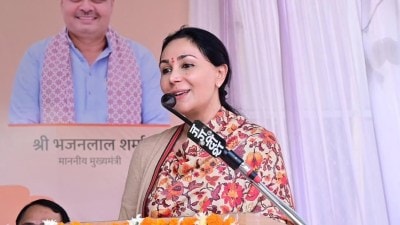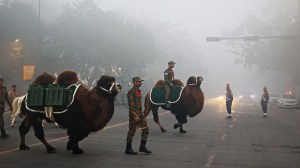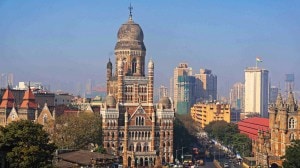Born in the future
When Prime Minister Manmohan Singh met President George W. Bush in September 2004, the two leaders had declared that Indo-US relations had n...

When Prime Minister Manmohan Singh met President George W. Bush in September 2004, the two leaders had declared that Indo-US relations had never been as good, but that the best was yet to come. As he concludes his visit to Washington, Singh has every reason to be satisfied at the first big steps he has taken with Bush to realise the full potential of Indo-US relations. Some of these steps related to the past and others to the future.
For Singh, who faces cynical political classes at home on the prospect of Indo-US relations, removing the burden of the past was important. Bush promised from the very beginning of his second term this year that he is politically committed to the transformation of bilateral relations. But Singh needed one dramatic example of American resolve. Therefore the Indian emphasis on bridging the nuclear divide which had embittered bilateral relations for decades. Bush came through handsomely in accepting the reality of India8217;s nuclear weapons and promising to create the legal basis, both at home and abroad, for comprehensive civilian nuclear cooperation on Indian terms. Singh wanted a bonus as well 8212; a reaffirmation of the American position on the sanctity of the Line of Control in Jammu and Kashmir. Bush was ready to say publicly what the Indians wanted to hear 8212; that the US has no desire to see a territorial diminution of India.
The nuclear and Kashmir issues were about the past, which the two sides are determined must look very different from the future. Bush and Singh have identified three broad areas for future joint initiatives. These include bilateral economic cooperation, which brings together the full range of new complementarities, including those of demographics and knowledge industries. Second was on spreading the virtues of democracy. In the past, India and the US were unwilling to make their own shared democratic values a basis for their foreign policy 8212; the US supported pro-Western dictators and India, the anti-imperialist ones who mouthed third world slogans. Now Singh and Bush recognise the importance of promoting the values of pluralism and tolerance which they identify as the key to winning the war on terrorism. Finally, India and the US have also figured out they need each other to structure a new balance of power in Asia and beyond. Together the three new areas of engagement should constitute the long awaited transformation of Indo-US relations.
- 01
- 02
- 03
- 04
- 05































